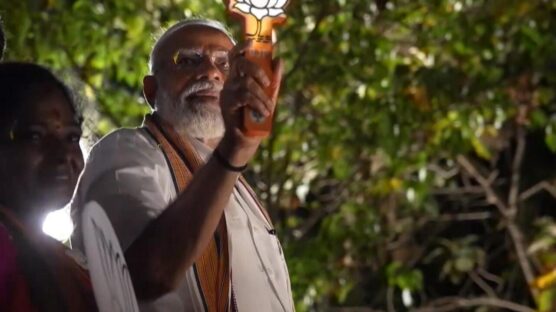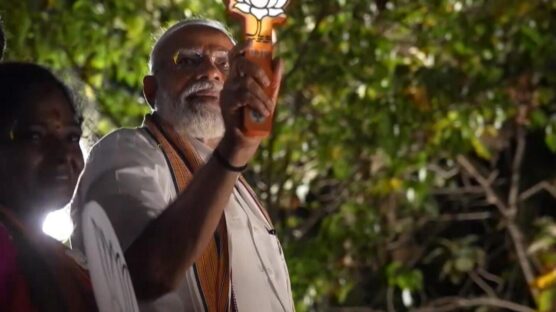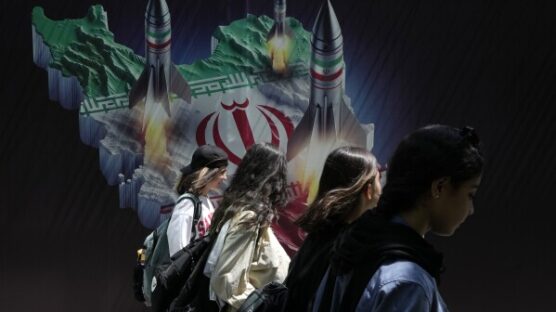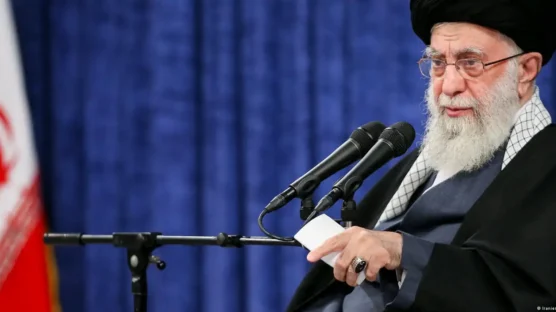Afghan refugees in India worried about family back home
By AFP
18 August 2021 |
6:08 am
Afghan refugees in India say they are worried about their family members back home, as many are unable to leave the country. Ayaan Rashid, an Afghan refugee in India, says his family in Kabul tried to get out, but they could not. He says that under Taliban rule, women will have no rights and "the whole country for all women is a jail".
Related
2 hours ago
Related
1 day ago
India's mammoth elections are now under way, with Prime Minister Narendra Modi widely expected to win a third term. Since coming to power in 2014, Modi has expanded subsidy programmes for the poor and women. These programmes include measures like equipping homes with butane gas by offering free cylinders or distributing free food rations. Some 60 percent of the population benefits from Modi’s food distribution scheme, which he has pledged to renew for another five years. Another success story is the nationwide rollout of digital payment services. Meanwhile, critics say the prime minister is eroding democracy by targeting opposition parties and controlling the media.
1 day ago
A world record of 969 million citizens are called to the polls for what some see as a referendum on one man. India is about to embark on the world's biggest election, staggered over seven weeks, with Narendra Modi’s Hindu nationalist BJP expected to extend its solid lead in parliament. Modi has been pointing to a decade of unprecedented growth and power for a nation courted by the West and beyond.
1 day ago
India's mammoth elections are now under way, with Prime Minister Narendra Modi widely expected to win a third term. Since coming to power in 2014, Modi has expanded subsidy programmes for the poor and women.
2 hours ago
Iranian state media have reported loud explosions in the sky near the central city of Isfahan. Tehran says say its air defense systems were activated at a nearby military base and a nuclear facility.
2 hours ago
How can a conflict that is taking place right now, and that’s regarded as the biggest humanitarian crisis in the world, become known as the forgotten war? Aid agencies say that after exactly a year of civil war in Sudan, driven by a fight for power between two military factions, the world has turned away.
2 hours ago
In this week’s special edition of Access Asia, we focus on India as the country's record-breaking election gets under way. In the past few years, India's ranking in the World Press Freedom Index has plummeted.
Latest
1 hour ago
Scientists are testing a quadrupedal robot, named Spirit, in the rugged terrain of Oregon's Mount Hood, simulating the extreme conditions of the Moon and Mars.
1 hour ago
Can new laws against hate speech online also reduce harassment in the VTuber scene?
1 hour ago
Tunde Onakoya, a chess mastermind and founder of Chess in Slums Africa, has completed an incredible feat! He embarked on a journey to break the Guinness World Record for the longest chess marathon without a loss, aiming to surpass the existing mark of 56 hours and 9 minutes. And in the early hours of today, Saturday, April 20th, Tunde emerged victorious!
4 hours ago
Tunde Onakoya, a chess mastermind and founder of Chess in Slums Africa, has just wrapped up a truly inspiring challenge! He attempted to break the Guinness World Record for the longest chess marathon without a loss, aiming to surpass the existing mark of 56 hours and 9 minutes. As at 04:30 am Saturday 20th morning,…
1 day ago
Find these stories and much more when you grab a copy of The Guardian on Saturday.
1 day ago
In the early hours of Sunday morning, Iran fired hundreds of missiles and drones at Israel in an unprecedented strike launched directly from Iranian territory. Almost all of the drones, rockets and cruise missiles launched by Iran were intercepted by Israeli air defenses with the help of the US, UK, and several Arab countries.
×

Get the latest news delivered straight to your inbox every day of the week. Stay informed with the Guardian’s leading coverage of Nigerian and world news, business, technology and sports.


















0 Comments
We will review and take appropriate action.